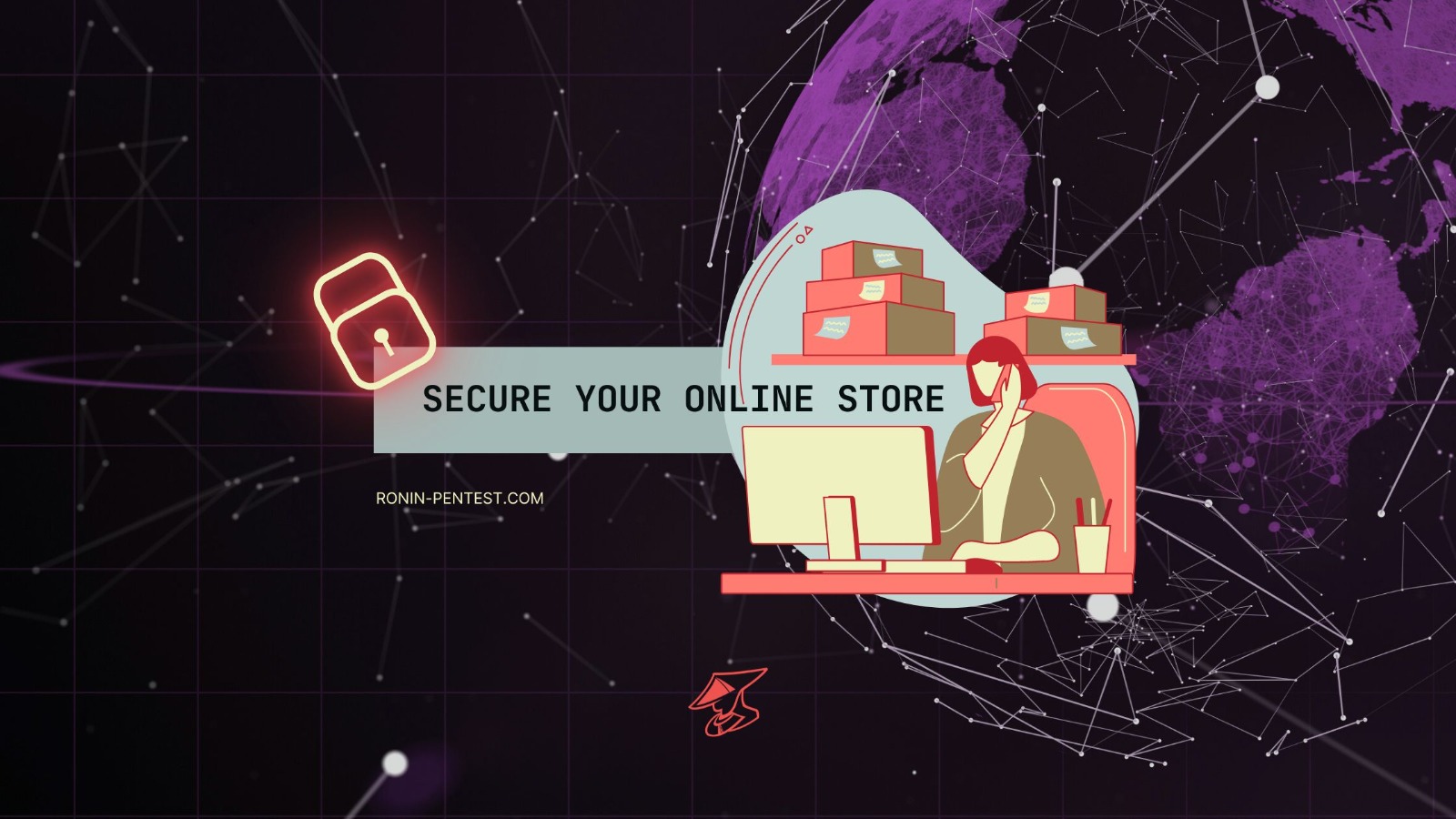The Ultimate E-Commerce Security Guide for Online Sellers with Ronin Pentest
by Ben Brown | 11/24/2023

by Ben Brown | 11/24/2023

In today's digital age, e-commerce is booming, but so are the security threats that can put your online business at risk. Ensuring your online store is secure is essential for both your business and your customers. Here at Ronin Pentest, we specialize in helping businesses like yours stay safe. Here's our simple guide to e-commerce security for online sellers.
One of the most important aspects of running an online business is ensuring the security of your customers’ payment information. To do this, you should choose reputable payment gateways that comply with the Payment Card Industry Data Security Standard (PCI DSS), which is a set of rules and best practices for protecting cardholder data. Additionally, you should never store customer payment information on your own servers, as this exposes you to the risk of data breaches and legal liabilities. By following these guidelines, you can build trust and confidence among your customers and avoid potential fines and penalties.
Another way to enhance the security of your online business is to use HTTPS and SSL certificates for your website. HTTPS is a protocol that encrypts the data that is exchanged between your website and your customers, preventing hackers from intercepting or tampering with it. SSL certificates are digital documents that validate your site’s authenticity and identity, and also enable encryption of the information that is sent and received. By using HTTPS and SSL certificates, you can protect your customers’ privacy and personal data, as well as boost your site’s ranking and reputation.
A third measure to improve the security of your online business is to implement strong password policies for your customers. Passwords are the first line of defense against unauthorized access to your customers’ accounts and data. You should encourage your customers to use strong passwords that are long, complex, and unique, and avoid using common or easy-to-guess words or phrases. You should also consider offering multi-factor authentication (MFA) for added protection. MFA is a method that requires your customers to provide more than one piece of evidence to verify their identity, such as a code sent to their phone or email, or a biometric scan. By implementing strong password policies and MFA, you can reduce the risk of account hacking and identity theft.
To secure your online business is to keep your software and plugins updated. Outdated software can leave your website vulnerable to cyberattacks, as hackers can exploit known bugs or flaws in the code. Therefore, you should regularly update your e-commerce platform and any plugins or extensions that you use, as they may contain important security patches or improvements. By keeping your software and plugins updated, you can prevent potential breaches and maintain the functionality and performance of your website.
Another essential practice to secure your online business is to regularly monitor and scan for vulnerabilities in your system. Vulnerabilities are weaknesses or flaws that can be exploited by hackers to compromise your website or data. By conducting regular scans for vulnerabilities, you can identify and fix them before they cause any damage. You can also consider partnering with experts like Ronin Pentest, a company that offers professional penetration testing and security auditing services, to perform regular checks and ensure the highest level of security for your online business.
One of the most important aspects of running an online business is respecting your customers’ privacy and personal data. To do this, you should have a clear and transparent privacy policy that explains what you do with customer data, how you collect, store, use, and share it, and what rights your customers have regarding their data. You should also comply with regulations like the General Data Protection Regulation (GDPR), which is a set of rules and standards for protecting the privacy and data of individuals in the European Union. By having a clear privacy policy and complying with GDPR, you can maintain trust and loyalty among your customers and avoid potential fines and penalties.
E-commerce security isn't just about protecting data; it's about building trust with your customers. By following these simple but effective steps, you can create a safe shopping environment that encourages customer confidence.
At Ronin Pentest, we provide expert vulnerability scanning and reporting to support your e-commerce security needs. Whether you are a small online seller or a large enterprise, we have solutions tailored to your needs.
Start scanning your projects for free. You will get a free breakdown of your security status. Start securing your future now.
Get started